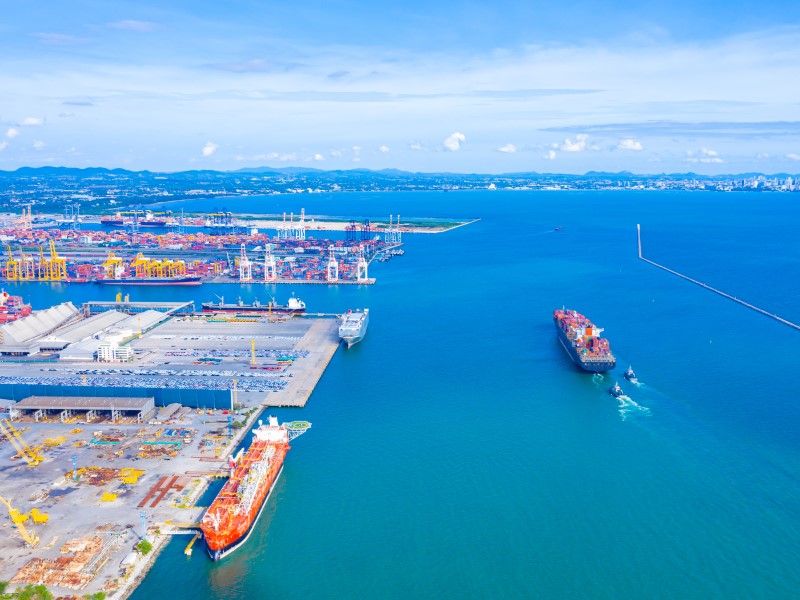Dubai, United Arab Emirates, 10 December 2023 - Africa and the European Union should strengthen their partnership on the ocean governance and the blue economy under the Africa – Europe cooperation to empower the local communities and help mitigate climate change, climate change experts at a side event at COP 28 say.
The side event on Leveraging African Leadership on Ocean Governance and Blue Economy: Strengthening cross-continental cooperation was organized in partnership with the United Nations Economic Commission for Africa (ECA), and the African Union Development Agency - New Partnership for Africa's Development (AUDA-NEPAD).
Jean-Paul Adam, Director, Policy, Monitoring and Advocacy in the Office of the Special Adviser on Africa to the UNSG said the ocean is critical to accelerating global climate and biodiversity action, providing food security and promoting a sustainable development for millions of people. However, ocean cooperation is not yet central to the AU-EU dialogue.
“Unsustainable human activities and their harmful impacts continue to degrade the ocean leading to profound changes and hampering the much- needed achievement of the UN 2030 and AU 2063 Agendas,” said Mr. Adam.
“Current mode of fishing in Africa are extractive. In contrast Local community have less value addition and limited participation in the value chain. We need to change this into a sustainable value chain like investing in renewable energy for cold chain.”
The AU he said has recognized the blue economy in agenda 2063. There is therefore a need to translate this into specific strategy. It is also fundamental to acknowledge the June 2023 Moroni Declaration for Ocean and Climate Action in Africa as it is progress towards address climate change crises and implementation of the blue economy by African countries.
Harsen Nyambe, Director of Blue Economy and Sustainable Environment at AU said Africa – European union partnerships is instrumental for addressing specific challenges, including the climate and biodiversity crises. AU is committed to continue working with the EU on blue economy.
He said the African Union recognizes the significance of the Africa – Europe strategy group on ocean governance. It has since created Centres of Excellence across the continent to contribute to evidence-based policy making, programming, and to improved ocean literacy.
Nassim Oulmane, Acting Director Technology, Climate Change and Natural Resource Management said Africa and the European Union share most of the coastline and partnership is key in addressing the climate change crisis, pollution.
The shared ocean seascapes between and around Africa and Europe he said provide a strong basis for the development of a coordinated strategy across the two continents.
“Both the AU and the EU have recognised that it is time to make progress on ocean cooperation while considering economic and social opportunities that fit with different levels of development across Africa and Europe,” said Mr. Oulmane
He said that there is need to scale up most of the initiatives on climate change for diversity of the oceans. ECA is working with IUCN on an initiative with the green wall, eastern part of the African Indian Ocean for creation of blue and involve the coastal population.
Pascal Lamy, Vice-President of the Paris Peace Forum, Chair of the EU Starfish Mission, said partnerships require time and resources. It is therefore important to monitor the progress and assess the efficacy of existing initiatives alongside the aspirations of the two continents to guarantee the desired outcome of the cross-continental partnership is met.
COP 28 has he said created an opportunity for countries to reflect and forge a head on their collaboration and partnership on ocean governance and blue economy and address the challenges of climate change. This requires political will and leadership on both the two continents – Africa and European continent.
“A shared vision on the ocean management and preservation is fundamental for exchanging best practices and learning on blue ocean economy through a reinforced multilateralism and capacity sharing,” said Mr. Lamy.
